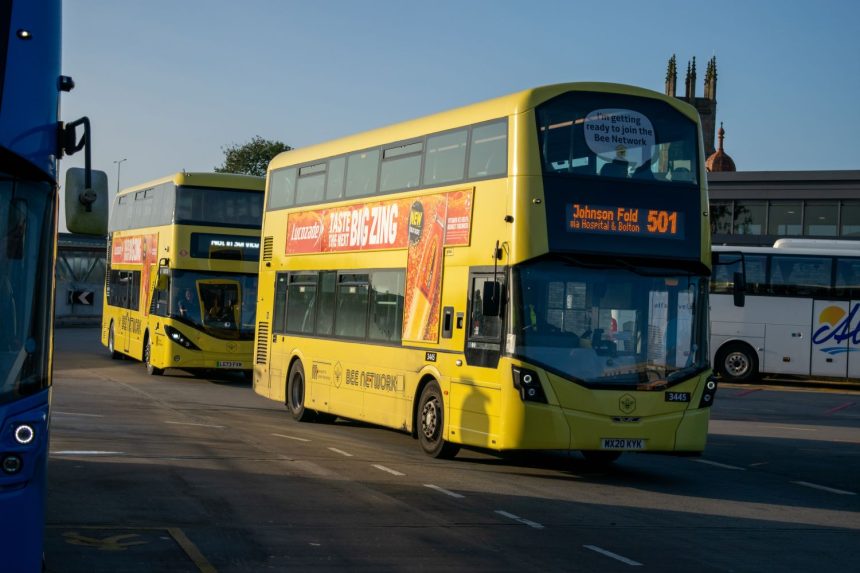The ambition around buses in Greater Manchester is welcome, but the switch to franchising will not alone reap success, says Confederation of Passenger Transport Chief Executive Graham Vidler
The new Bee Network in Manchester has caught the attention of the media and passengers alike in recent weeks, after the high-profile launch of the new franchised bus system.
It is excellent to see a renewed focus on buses. When I attended the launch in Bolton, the amount of excitement in the air was palpable. The promise of positive change for the area’s buses has clearly resonated with the region’s passengers. After all, buses account for three quarters of all public transport journeys in Greater Manchester.
We share Mayor Andy Burnham’s enthusiasm for improving bus services in the region. He has set some hugely ambitious targets, including adding 50 million more passengers by the end of the decade, an increase of 30%. This is a goal that we wholeheartedly support, but it is vital to recognise that it won’t happen just because the area’s network now operates a franchised system.
Greater Manchester’s bus services require a real sustained investment in the things that matter most to passengers, such as bus priority, which delivers faster, more reliable journeys. A concentrated effort to get buses out of traffic and increase bus speeds is the easiest way to do this. This is particularly the case in the North West, where average bus speeds have fallen faster than anywhere else in the country, to a fraction over 10mph.
Encouragingly, Transport for Greater Manchester has outlined areas where bus priority measures can be implemented. Quality Bus Transit Corridors are set for Salford Crescent and MediaCityUK, while similar orbital bus priority measures are earmarked for routes between Bury and Rochdale, Ashton and Stockport, Wigan and Bolton and Rochdale-Oldham-Ashton. These changes are proposed to take effect in the next few years and we look forward to working with the Mayor and the teams at the Combined Authority to make this a success. It will help in delivering the improvements that passengers want across the region.
The subject of franchising is an issue that will only gain more prominence in the coming months, with Wales, Scotland, Liverpool, West Yorkshire and the West Midlands all considering it as a viable option.
These discussions are likely to intensify. When this happens, it will be worth remembering that, whether it is franchising or partnerships that is pursued, it does not change the fundamental economics of running a bus service. These are dictated by many factors that are often quite independent of any individual operator.
Ultimately, passengers want fast and reliable journey times, investment in clean and well-equipped buses and competitive pricing. These goals are delivered equally well, no matter what model is pursued.
In the end, it will take more than a change of regulatory framework to give millions of passengers the service they deserve.



























